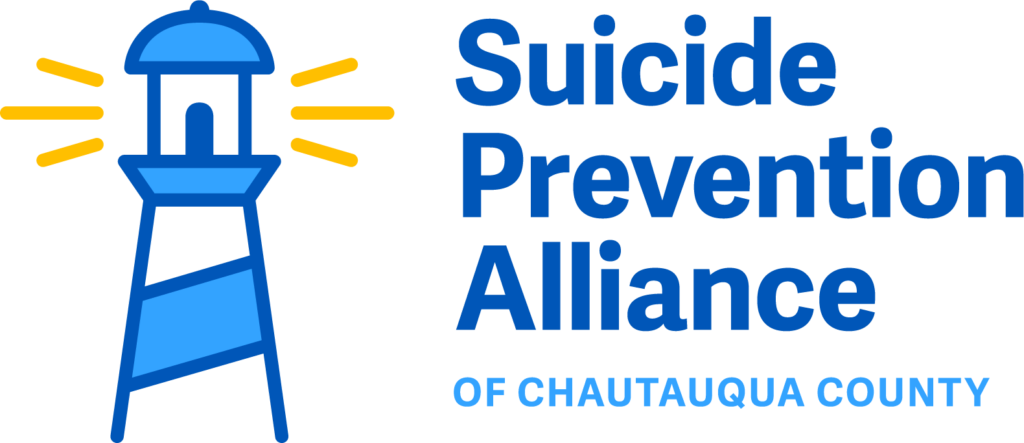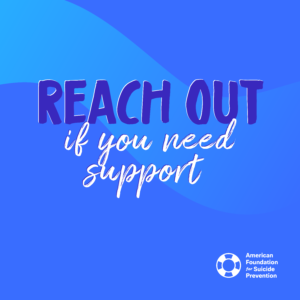After an Attempt
Please note: The information on this page should not be taken as medical advice and would be best used alongside the support of a trained health professional and your own support networks. It is a starting point and will not answer every question, but hopefully it will provide some perspective and suggestions.
Getting your health back on track after attempting suicide is not easy. It takes time to recover physically and emotionally. Things might feel out of control and you might find yourself asking, what now?
Life after a suicide attempt may at first feel chaotic and without direction but with time and the right support you can find your way back to a life filled with hope, connection and a new sense of purpose and meaning. Many people who have attempted suicide may have been experiencing a mental health condition, which is treatable through positive connection, coping, and safety supports.
After a suicide attempt it can be hard to see what the future holds. It might help to see this time as a turning point; an opportunity for you to find your way back. You will still have ups and downs. However, by focusing on the potential for change following your darkest times, and accepting the assistance of others, you can create opportunities that offer hope and direction for your future.
Chautauqua County Alternatives to Suicide
Chautauqua County Alternatives to Suicide is a group where people who have struggled with suicidal thoughts or suicide attempts can come together to talk about our experience, our struggles, and our triumphs without judgement or fear. We share openly and honestly, keeping our conversation focused on our experiences as they are, not what we should be feeling or doing. Our focus is on community and peer support, all who have struggled are welcome to come.

A visit to the hospital can be a daunting experience. The waiting, the busy environment and the lack of control over the situation feel unsettling. At the hospital, medical staff will look at physical injuries first. After these have been treated, they will then arrange for a discussion with a mental health professional. Using the information from this discussion, the mental health professional will assist you to make plans for the next few days and talk about what might be helpful in the coming weeks. They might also make appointments or recommend you make contact with other appropriate services.

Seeing a General Practitioner or Doctor can also be helpful to discuss your situation and determine if further medical tests are needed. If you are currently connected with a mental health counselor or social worker, calling to make an appointment as soon as possible after the attempt is very important to start the emotional healing process and for continued safety connection.

Consider involving others immediately after a suicide attempt. Think of those who you trust in conversations and involve them in your connections with health and mental health professionals. They can help keep you safe at home and can be a second pair of ears to provide extra information in discussions. When you are in the middle of it, you don’t necessarily want someone to have all the answers… you just want someone to sit by you, who will keep you safe, not make any judgments, acknowledge what is happening for you and help you develop your own understanding.
Before going home
With the right support in place you should be able to go home. If you do not feel safe to return home, say so and ask what other options are available. It can be helpful to write this information down so that you can refer to it again later. Often it can be hard to remember things when you are tired or stressed.
Before you head home make sure you have an understanding of:
- What you can do that will make it easier to get through the next few days.
- What supports are available and useful to you when you return home.
- What you should do if you feel suicidal again.
- Names and contact details for mental health professionals or other support services.
- Names and contact details for emergency services, hotlines, other supports.
https://www.bethe1to.com/safety-plan/
The first few days after your suicide attempt are critical and will often raise a range of questions such as:
- What now?
- How can I be sure I will get back on track?
- How can I stay safe?
There are no clear cut answers but there are several things you can do to make it easier. Suicide is complex and not having the answers may not come easy.
- Let other people assist you when it is possible.
- If you live alone, consider asking someone you trust to stay with you until things settle down. Alternatively, you might prefer to stay at their home for a period of time.
- Follow the advice of doctors and take any medication they have prescribed.
- Try to establish a routine with sleeping, meals and exercise.
- Keep appointments with mental health professionals and doctors.
- Remove things in and around the house that you could harm or kill yourself with.
- Keep the use of alcohol and drugs to a minimum and preferably avoid them altogether. They can impair your judgment and make you feel worse.
- If people are trying to be helpful, acknowledge and respond to them. Although you may still not be in a space to talk in any detail, let them know you will talk more when you feel ready.
- If people from your support network are not available and you feel worried, unsure or suicidal again, please see our crisis resources.
Support Network: Surround yourself with people that you trust, who will listen to you without judgment and that you enjoy being with. Different people may have different roles.
- A parent or family member may help you feel loved and cared for.
- A friend may be great if you are feeling down and want to have a laugh or do something socially.
- A neighbor or work colleague might be a good person to talk about things other than your personal life.
- A religious or community leader may help you to connect or reconnect with spiritual beliefs or community activities.
- A mental health professional might be the best person to assist with strategies to deal with stress and coping.
There is room for a whole range of people in your support network but make sure you identify at least one person you feel that you can talk with about how you are feeling.
If thoughts about suicide return it can be common but is not a sign you have failed or that you are not recovering. Recovery from a suicide attempt is about building strategies and confidence in managing thoughts about death and suicide if or when they return. Some people find that their suicidal thoughts can return in response to significant stress or tension. Often the hardest time to manage thoughts about suicide or death is in the period immediately after an attempt or after discharge from hospital. It is important to make sure you have thought about how you will respond if you become suicidal again. Many people find that it is useful to prepare a safety plan. A safety plan is a series of steps that you follow if you start to feel suicidal again. Often a health professional will work with you to develop a safety plan, but you can also do one yourself. Safety plans usually include a list of:
- Signs or triggers that tell you that you are becoming overwhelmed or suicidal.
- Strategies that you can use to help get through those times when the urge to end your life is greatest. This can be a combination of distractions and things that make you feel a bit better, such as talking to a good friend, going for a walk, watching a movie, having dinner with family, prayer, etc.
- People you can talk to when you are struggling. This might include family members, friends, as well as doctors, counsellors, community or religious leaders.
- Professional services to contact, including services that are available 24 hours a day, such as crisis telephone support services, hospitals and Emergency Services.
Looking after yourself by making connections to other people and things you find important can protect you against suicidal thoughts or make it easier to manage if such thoughts return. It is not uncommon for people to feel disconnected from life and those around them leading up to a suicide attempt. This can be a good time to reconnect with the things that are important to you. Work with people that you trust to help identify ways to reconnect with things you find meaningful. It can also be a time to discover new things that are important to you.

